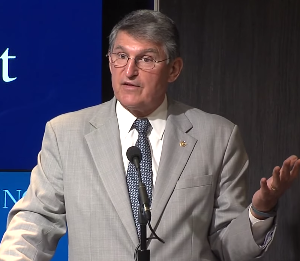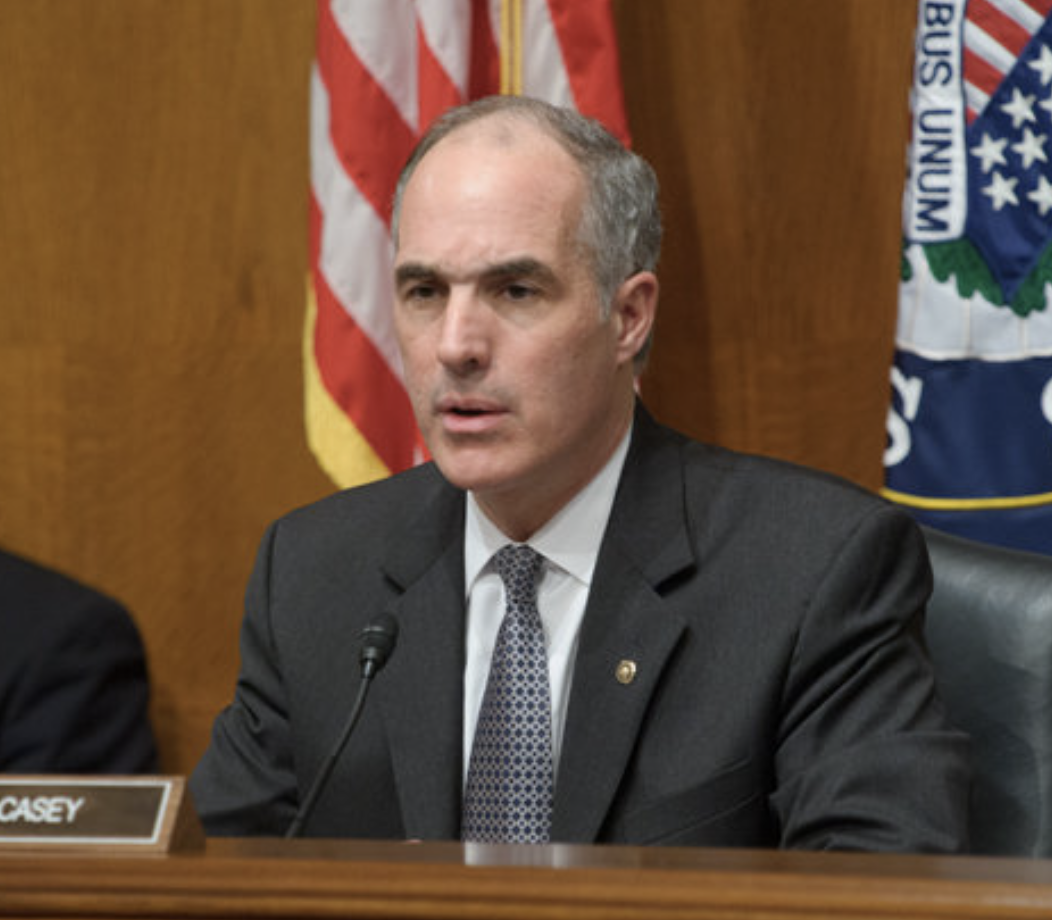Inflation, Recession Can’t Stop Dems Rush to Embrace $1 Trillion in New Spending

Inflation may be high and the U.S. economy may have dipped into recession, but Democrats are still rushing to back major new spending initiatives. And not just Democrats in deep-blue districts. In swing states like New Hampshire, Nevada and Pennsylvania, Democrats are on board with an additional $1 trillion in spending from the Biden administration.
Last week, Congress voted to spend $280 billion to subsidize domestic microchip manufacturing and fund science and tech research. While the House and Senate votes were bipartisan, every Democrat voted yes, while most Republicans voted no. And many of the GOP “yes” votes came from members who are retiring (Adam Kinzinger of Illinois) or are in purple districts Biden carried in 2020 (Brian Fitzpatrick of Pennsylvania).
Voting to spend a quarter of a trillion dollars at a time when polls show many voters blame the current inflation crisis on trillions in new federal spending under President Biden might appear politically risky. But Democrats remain undaunted.
“I voted to pass the #CHIPSandScience Act — including my priority to foster innovation in regions like ours!” tweeted Rep. Susan Wild of Pennsylvania, considered one of the most vulnerable Democrats in Congress.
“Thrilled to see the CHIPS and Science Act I helped pass head to the president’s desk to become law,” added Sen. Catherine Cortez Masto of Nevada, another endangered Democratic incumbent up for re-election in November.
Now comes news of a deal between Senate Majority Leader Chuck Schumer and moderate West Virginia Democrat Sen. Joe Manchin to spend an additional $739 billion on green energy, healthcare subsidies and — according to Manchin — paying down the national debt. The plan includes $500 billion in new tax revenues, some from a 15 percent minimum corporate tax, and doubling the number of IRS agents to conduct more audits of taxpayers.
Manchin has labeled it the “Inflation Reduction Act of 2022,” though the effect of $450 billion in new spending on climate and healthcare on inflation is less than clear. However, advocates for green energy policies say the effect will be significant.
“This is the most significant action on climate and clean energy that we’ve ever taken in this country,” said Sen. Tina Smith, D-Minn.
Between the two plans, Biden is proposing $1 trillion in new spending even as inflation hits a 41-year high of 9.1 percent.
New Hampshire Sen. Maggie Hassan, another high-profile target of GOP efforts to take back the Senate, said she was “encouraged by the agreement on the Inflation Reduction Act, which will fight inflation, pay down the deficit, make prescription drugs cheaper and lower energy costs.”
“We have an opportunity to address pressing priorities for Granite Staters and all Americans, and I’ll keep working with my colleagues to finalize a measure that reduces costs and strengthens our economy.”
Rep. Annie Kuster, another New Hampshire Democrat whose race is rated a “toss-up” by Cook Political Report, used her support for the Manchin-Schumer proposal to dodge questions about inflation. Asked by Punchbowl News about the data showing two quarters of declining gross domestic product and what it means, she replied:
“To be honest, I haven’t (looked). I’m more focused on the package that might be passing in the Senate. I’m super excited about the jobs and opportunities that are going to come out of this.”
And Pennsylvania’s Democratic senator, Bob Casey, said via Twitter: “The Inflation Reduction Act will lower everyday costs for families while also reducing the national deficit and putting us on a path to meet our climate commitments. I look forward to working with my colleagues to get this done.”
While Democrats may be basking in the glow of an agreement with the recalcitrant Manchin, questions remain about their ability to get the bill passed. Sen. Kyrsten Sinema of Arizona, for example, has expressed reservations in the past about supporting the tax policies it includes.
Meanwhile, Republicans are already using the proposal to label Democrats the party of “tax and spend” economics.
“Now that the data scientists have confirmed that the U.S. is indeed in a recession, clearly fueled by excessive government spending and a strangling of domestic energy, it is even more unconscionable for congressional Democrats to conspire to force yet another tax-and-spend bill on the American people,” said Paul Teller, executive director of Advancing American Freedom, an organization founded by former vice president Mike Pence.
Akash Chougule with Americans for Prosperity called the legislation “a random grab bag of corporate welfare and tax hikes that will do nothing to address inflation — except potentially put us even deeper into recession. For years, members of both parties — including Sen. Manchin — agreed you don’t raise taxes in a recession because it would be devastating to the economy. With a rapidly shrinking economy, inflation at historic highs, and gas prices over $4 a gallon, you’d be hard-pressed to find a worse time for more spending and higher taxes.”
In the past, spending tax dollars offered a bigger political bang for the buck than fiscal restraint. Have the politics of inflation and recession changed the Election Day math? Democrats are about to find out.


